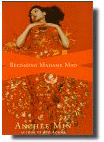
|
Becoming Madame Mao
Jiang Qing, the White Boned Demon, finally finds her voice in Anchee Min's new novel and uses it to spin her tale Becoming Madame Mao. (more)
|
| |
Previous Reviews:
|
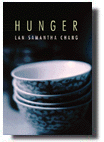
|
Hunger
In clear, often shining prose Chang paints a world in which her characters are no longer sure if they are Chinese, American or somewhere in between. (more)
|
| |
|
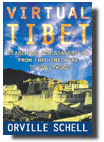 |
Virtual Tibet
In Virtual Tibet, author Orville Schell lays out Tibet's precarious reality as it lies somewhere between China's manipulative designs and Hollywood's romantic imaginings. (more)
|
| |
|
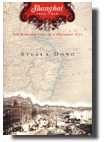
|
Decadent Shanghai
This conscientious, deftly-written popular history of pre-Revolutionary Shanghai is a great introduction to a city that once was the world's premier East-West trading port - and may well be again. (more)
|
| |
|
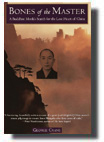
|
Bones of the Master
"Bones" is an edge-of-your-seat travel adventure and a biography of a one-of-a-kind monk. But what really sets this book apart is the curious relationship between author, Crane, and his subject, a 75-year-old monk from Inner Mongolia. (more)
|
| |
|
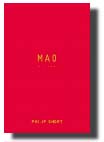
|
Mao: A Life Stranger than Fiction
Part adventure story, part intellectual history, part political intrigue this biography of Chairman Mao by journalist Phillip Short reads like a novel. (more)
|
| |
|

|
Dusting Off a Family Heirloom
If you enjoy reading Amy Tan, Gish Jen, and other Chinese-American or American-Chinese authors and are interested in the history of Chinese communities in the US you might want to have a look at the now classic Chinatown Family by Lin Yutang. (more)
|
| |
|
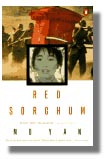 |
Bringing Eastern Prose to Western Publishing
Howard Goldblatt is, if not the most prolific translator
of Chinese fiction into English, then certainly the most well-known.
He brings the best modern Chinese books to life for
readers in the US, Europe, and elsewhere. (more)
|
| |
|
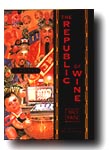 |
Mo Yan Takes Another Shot
Mo Yan's "Republic of Wine" is set in the fictional Chinese province of Liquorland, with a motley cast of evil characters from a superhuman imbiber called Diamond Jin to a scaly dwarf who leads a murderous band of infants. (more)
|
| |
|
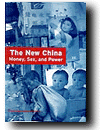 |
The New China: Money, Sex, and Power
With copious hyperbole and vitriol of the sort that can be produced only by someone who has spent too much time in a frustrating cultural situation Massonet's writing proves that his four years working as a reporter in China were fruitful. (more)
|
| |
|
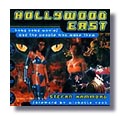 |
Hollywood East
Designed for neither the expert nor the novice Hollywood East tugs the reader into the world of Hong Kong movies with so much furious verbal enthusiasm that it can take your breath away. (more)
|
| |
|
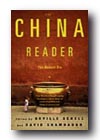 |
The China Reader: The Reform Era
When Deng Xiaoping, the de facto successor to Chairman Mao's supreme power and the man responsible for China's opening up to the West, passed away in 1997 it was as if he was right on cue to neatly bring to an end the twenty-five year period tackled in this book and now known as The Reform Era. (more)
|
| |
|
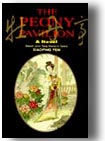 |
Sweet, Simple Peony
Yen Xiaoping's novelized adaptation of The Peony Pavilion, is a bawdy, plot-driven lark. Either as accompaniment to the stage production or read by itself, Yen's Peony is a wonderful way to get acquainted with this masterpiece. (more)
|
| |
|
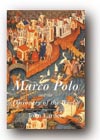 |
Did Marco Polo Make it All Up?
Every schoolchild knows that Marco Polo had something to do with firing up the early Western imagination of China. But Sinophiles have gone searching for traces in Marco's accounts of Khublai Khan's vast empire of the China and Chinese they might recognize. (more)
|
| |
|
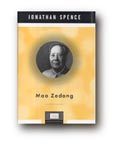 |
Mao Zedong
Coming to grips with the amazing life of Mao Zedong, the man and the monument, is a daunting task. He was, after all, the leader who launched and presided over the most radical, sweeping, and wrenching social experiment of the twentieth century. His own story is China's political story. (more)
|
| |
|
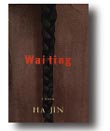 |
Ha Jin and His Waiting
Ha Jin is a master of the minor detail, evoking vividly the sights, sounds and smells of Chinese food, streets and dormitories. These will ring familiar and true to people who know China well. (more)
|
| |
|
|
|
Also See Our Interview:
Virtual China talked with Ha Jin about Waiting, the book that won him the coveted U.S. National Book Award for 1999. (more)
|
| |
|
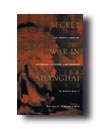
|
A Shanghai Story of Spy vs. Spy
After the outbreak of the Pacific War, intelligence gathering in Shanghai turned from a broad activity aimed at foiling communism to top-level spying. Citizens of the Allied nations living there were often prone to collaborate with the Japanese, passively or actively. (more)
|
|
|
Also check out our
Online Guide for China Bookworms.
and The VC Bookstore
|

